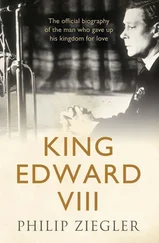Kenyon, Miranda said, had gone on to something where at least you could see where the good was being done. Who knew whether anything was being improved, what end was being served by the vagaries of monetary policy? (‘You don’t mean monetary,’ Kenyon said, though it was impossible to tell whether Miranda meant monetary or not, surely.) At the AIDS non-governmental organization, there were clear villains and clear heroes. There were Roman Catholic cardinals in Africa who told lies to their flocks about rubber prophylactics. And on the other side, there were orphans. The Treasury had been like that once: there had been Thatcher, the witch, and monetarism on the one side, destroying people’s lives and cackling over it, and on the other, the miners. Those moral contrasts seemed to have gone on holiday for the moment. In more recent times, there had been no cardinals or orphans at the Treasury; it all seemed so vast and trackless nowadays.
At the time Miranda had been voluble about Kenyon’s change of career. She had gone on talking about it ever since. Through a useful mechanism, the Treasury had gone on matching Kenyon’s salary and had agreed to regard him as being seconded to Living With Aids (Africa) for five years in the first instance. In a moment of exuberance, Miranda had led him to a bank, told an unverified white lie or two, and walked out with a mortgage six times their combined salaries, with which they had moved from a fisherman’s cottage to the wide bright house on the Strand. Four years had gone by, and it was as if they had always lived there. Kenyon, in private, would occasionally bemoan their lack of savings, the way things seemed to run out towards the end of the month. It was lucky they had principles about not educating their daughter outside the state system. But the house was an unarguable good. And more to the point, nothing had been said by the Treasury about Kenyon’s imminent return. For some reason—some guilty reason, since Kenyon was so able and likeable—it often occurred to those she spoke to to wonder whether the Treasury might not have been keen to get rid of Kenyon for some reason. But surely not. Miranda said she hoped Kenyon would stay for the ten years they were now anticipating. It did her so much good to think of what Kenyon did for a living.
The train was crowded and talkative. Kenyon and Caroline squashed into the same seat with their various bags piled up on their laps, facing forward. In a line, spread out along the aisle, seven teenagers called out. They were going to the Bear first—no, the Pincers; but one had told Carrie they would be in the Jolly Porters and they knew she’d lost her mobile, so what about that then, what were they going to do about that?
‘These people,’ Caroline said, shifting her bag of shopping further onto her knees. She meant to be heard. ‘I don’t know what they expect to see when they get to Hanmouth.’
‘The most extraordinary thing,’ Kenyon said. ‘As we were pulling out of Paddington, a young man got out a gun and started firing into the crowd.’
‘Oh, no,’ Caroline said. ‘On the train?’
‘No,’ Kenyon said. ‘On the concourse. I just glimpsed it as the train was pulling out of the station. I haven’t seen a newspaper and there weren’t any announcements, so I don’t know how serious it was.’
‘How dreadful,’ Caroline said. ‘That sort of thing seems to happen so much more often nowadays. What a lucky escape you had. I can’t imagine what these people are doing going down to Hanmouth. People just seem to go wherever they think there’ll be a crowd. Trafalgar Square on New Year’s Eve. People go there but they don’t know why. Safety in numbers, I suppose—numbers of idiots, anyway.’
Two girls in front of Kenyon and Caroline, one talking on her mobile phone with a hand pressed against her other ear, turned simultaneously, stared from a three-foot distance, and shrugged with as much direct offence as they could muster before turning back.
‘What are you reading tonight?’ Kenyon asked. ‘I remember now—Miranda told me to make myself scarce and not expect much in the way of supper.’
‘Don’t you get something at Paddington?’ Caroline said. Kenyon agreed that sometimes he did, holding back the recurrence of a scene as his mind reconstructed it. ‘They’re terribly good, those outlets nowadays—sushi on a conveyor-belt at Paddington, isn’t there?’
‘Waa-raa-argh,’ went the four teenagers in a scrum at the end of the carriage as the train leant into the St Martin’s bend. They fell against each other, then righted themselves hilariously.
‘No, I’ll wander down to the pub on the quay for a bite to eat,’ Kenyon said. ‘Once I’ve done my duty and greeted my wife.’
‘You’ll be lucky,’ Caroline said. ‘Everywhere’s been packed to the gills all week. Haven’t you heard? Trippers, journalists, film crews, all eating their heads off. And drinking, of course. It’s been precisely like a siege. Hasn’t Miranda said?’
‘She did,’ Kenyon said. ‘I thought she was exaggerating.’
‘Not in this case.’
There was a new noise in the air, of disagreement and disapproval and pleasure. It was like the load of a substantial lorry shifting and rumbling; it was like the bass voice that announced coming attractions at the cinema clearing its throat; it was like a Welsh male voice choir saying ‘RUM’ in unison. It was the sound of a community centre in the west of England, every chair filled and every spare standing space occupied with onlookers, journalists, locals, cameramen, people who had no reason or every good reason to be there. The hall was full, and spilling out into the street outside. Dozens of curious people were standing in the warm late-spring evening. From time to time one jumped up to glimpse, through the open double doors and over the heads of the crowd, the six mismatched individuals on the stage of the community centre.
One of them, the chief constable, gave a wounded, reproachful look around the hall. His face had something weak and sheeplike about it, a long, loose-lipped face topped off with hair white, crinkled, sheeplike, and his voice bleated as it attempted to assert some authority. ‘I repeat: we are doing everything possible in this case, with the greatest possible sense of urgency. We are following several, a number of strong leads at this present time. The efficacy of the police operation should not be doubted by anybody here present.’
It was the use of the word ‘efficacy’ that roused the moan of satisfied disagreement in the first place. The policeman’s first use of such a word stirred the gathering to a communal expression of disapproval and unformed hostile emotion. Now he repeated it, satisfied with the official and distant tone of the word. Perhaps he felt it conveyed calm practicality. The hall’s rage and distaste rose in volume, mounted and prepared to come to a point. One of the women who had arrived early with Ruth, the mother’s best friend, a woman not known to the crowd at large, now stood up. When she did so, it could be seen that she and Ruth and three other women had arrived early and placed themselves with some care: they occupied a prime position between the television cameras and the party on stage. The woman’s hand was already raised, as if in a tragic gesture, as if to take a courtroom oath.
‘I’d like the chief constable to know that it isn’t “this case” we’re talking about. It may be just “this case” to him in his big office and his forms he’s filling in all day long. It’s not “this case” to me and Heidi and Mick up there on the stage, and a hundred other people who know China and are missing her. Heidi and Mick are crying their eyes out and not getting a wink of sleep for worry. It’s my little girl Natasha’s best friend China we’re talking about. It’s their little girl who’s been missing for ten days now. Ten days and ten nights and nothing done. Anything could have happened to her. What have they found out? Nothing. They’d done nothing.’
Читать дальше












